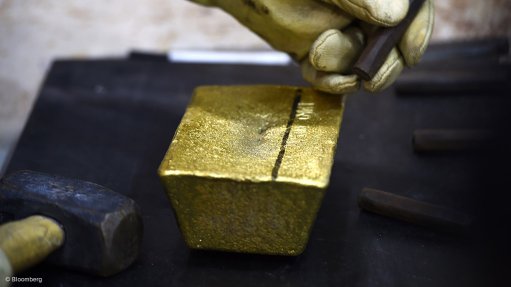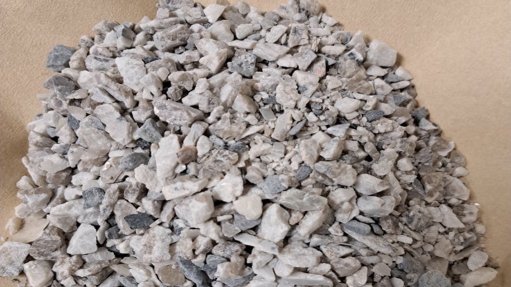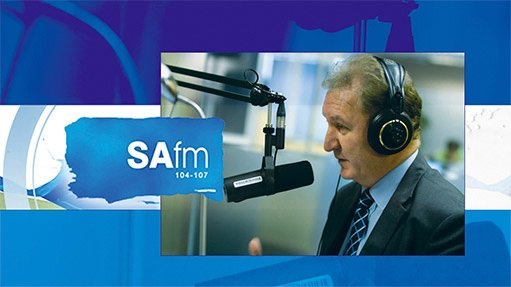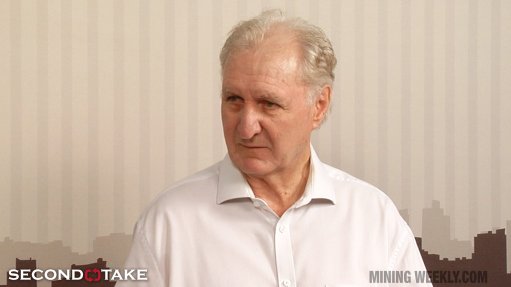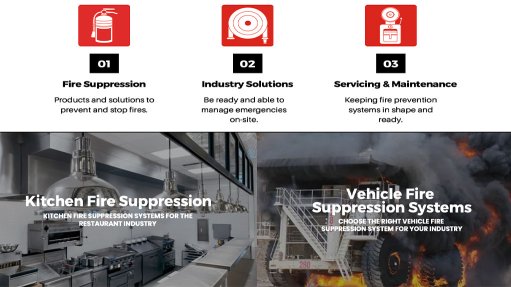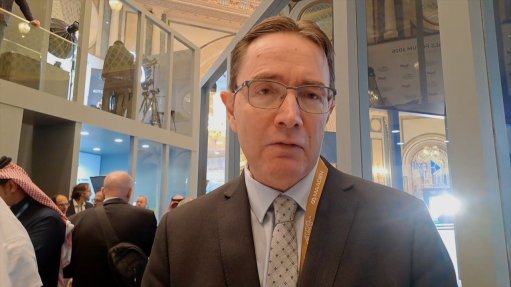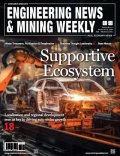Company’s products adhere to global standards

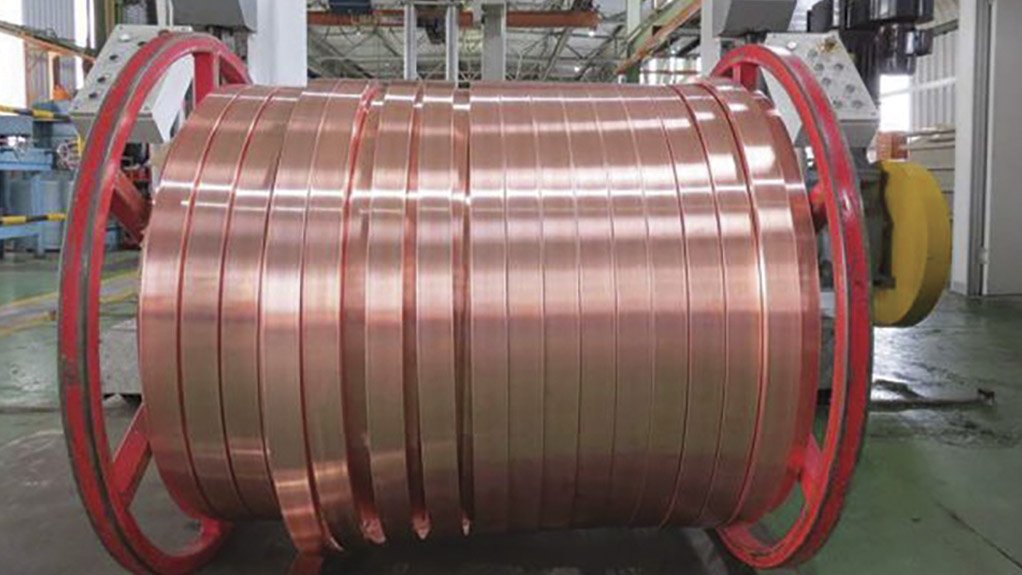
DIFFERENT SHAPES AND SIZES A full range of copper and alloys is manufactured by the company’s extruding production unit and supplied in semi-fabricated form to local and international destinations
Metals supplier Non-Ferrous Metal Works (NFMW) manufactures semi-fabricated copper and brass extruded shapes that comply with international chemistry, physical tolerances and the mechanical characteristics of end-products.
All products are graded according to ISO 9001 quality assurance standards, explains NFMW director Ronald Lazarus.
A full range of copper and alloys is manufactured by the company’s extruding production unit and supplied in semi-fabricated form to local and international destinations.
Much of the local semi-fabricated supply is converted into finished components, which are sold into the domestic mining industry. These components are also sold to mines in the rest of Africa, as well as to international mines, for specific mining industrial applications.
“The major markets that these products are shipped to include the US, China and Australia. The product lines that are exported include leaded, nonleaded and manganese brass alloys, as well as high-tensile bronze alloys.”
In addition, oxygen-free copper niche shapes are often exported for copper mines’ anode hangar bar requirements.
Lazarus points out that the copper feedstock is moved using tri-axle trucking rigs from mines to the NFMW smelter in Durban, KwaZulu-Natal.
The reliability of mine supply and logistics – in terms of transportation – allows for a relatively quick supply chain turnaround, compared with sea freight shipments from other continents, he says.
In addition, NFMW does a secondary, above-ground recycling of assorted metals into copper and alloys manufacturing to meet international demand for specified chemistry and physical shapes, in line with mechanical specifications.
Base metals are subject to different market demands, says Lazarus.
Aluminium is the most used base metal from a linear meterage measurement perspective and can be categorised into extruded profile shapes or rolled products in the form of sheet, plate, flashing, foil or circles.
Lead is used by the battery industry and is also required by foundries for alloying into brass and bronze alloys, while tin is used by electrical, canning and soldering industries, as well as niche foundries, for alloying into brass and bronze alloys. Zinc is used by galvanising plants and die casters, as well as brass and bronze alloying foundries.
Despite the variety of markets to which NFMW supplies, the adverse effects of Covid-19 have impacted on business, with former clients closing or having to deal with significant changes.
“As a result of the lockdown impacting on a variety of markets, the industry has seen the domestic closure of production of the largest brass consumer in South Africa, Japanese manufacturer LIXIL’s Cobra brand plumbing and faucet manufacturing.
“Moreover, a family-owned brass manufacturer business Procast Manufacturing, in Cape Town, also decided to close its doors and liquidate all its assets.”
Meanwhile, owing to load-shedding becoming a continuous challenge for casting plants, which need the manufacturing process to run 24/7, two manufacturing plants in KwaZulu-Natal are being consolidated into one unit in Prospecton, in Durban.
However, despite the turmoil in the local market, the international market is more agile and provides opportunities for growth. As such, the commodities division’s primary function is to source quality-assured scrap generated by its own production feedstock manufacturing requirements to supply products to other international mines.
An alternative trading option is to supply other manufacturing companies with base metals-graded scraps for their manufacturing beneficiation programmes, Lazarus concludes.
Article Enquiry
Email Article
Save Article
Feedback
To advertise email advertising@creamermedia.co.za or click here
Press Office
Announcements
What's On
Subscribe to improve your user experience...
Option 1 (equivalent of R125 a month):
Receive a weekly copy of Creamer Media's Engineering News & Mining Weekly magazine
(print copy for those in South Africa and e-magazine for those outside of South Africa)
Receive daily email newsletters
Access to full search results
Access archive of magazine back copies
Access to Projects in Progress
Access to ONE Research Report of your choice in PDF format
Option 2 (equivalent of R375 a month):
All benefits from Option 1
PLUS
Access to Creamer Media's Research Channel Africa for ALL Research Reports, in PDF format, on various industrial and mining sectors
including Electricity; Water; Energy Transition; Hydrogen; Roads, Rail and Ports; Coal; Gold; Platinum; Battery Metals; etc.
Already a subscriber?
Forgotten your password?
Receive weekly copy of Creamer Media's Engineering News & Mining Weekly magazine (print copy for those in South Africa and e-magazine for those outside of South Africa)
➕
Recieve daily email newsletters
➕
Access to full search results
➕
Access archive of magazine back copies
➕
Access to Projects in Progress
➕
Access to ONE Research Report of your choice in PDF format
RESEARCH CHANNEL AFRICA
R4500 (equivalent of R375 a month)
SUBSCRIBEAll benefits from Option 1
➕
Access to Creamer Media's Research Channel Africa for ALL Research Reports on various industrial and mining sectors, in PDF format, including on:
Electricity
➕
Water
➕
Energy Transition
➕
Hydrogen
➕
Roads, Rail and Ports
➕
Coal
➕
Gold
➕
Platinum
➕
Battery Metals
➕
etc.
Receive all benefits from Option 1 or Option 2 delivered to numerous people at your company
➕
Multiple User names and Passwords for simultaneous log-ins
➕
Intranet integration access to all in your organisation







